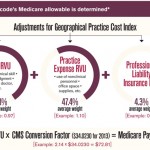A little-known committee of the American Medical Association, the Relative Value Update Committee (RUC) plays a big part in how rheumatologists and other specialists are paid, by providing recommendations that can help shape the Medicare Physician Fee Schedule (PFS). The PFS not only sets Medicare’s reimbursement rate for thousands of medical services, but also serves as the model for insurance companies in setting their own fee schedules.
Fortunately, the ACR has long had representation on the RUC, and as of this fall, one more member is joining the table: RUC trainee Luke Barré, MD, MPH, RhMSUS, a rheumatologist with Hawthorn Medical Associates in Dartmouth, Mass.
Why the RUC Matters

Dr. Barré
“I think a lot of us—myself included, until just recently—are ignorant of how important the RUC is,” Dr. Barré says. “In fact, when I first became aware of the opportunity to participate, I had to look it up to see exactly what it did.”
Through research and attendance at his first RUC meeting in September, he learned that the reimbursement decision-making process is based in large part on survey information that is reviewed and discussed by the healthcare providers on the committee. “So the only way we as rheumatologists can have any influence over those recommendations is by participating in the RUC process,” he explains.
The AMA RUC meets three times a year and advises the Centers for Medicare & Medicaid Services (CMS) about the time and effort required for various medical procedures and services to help it set appropriate reimbursement rates, explains current RUC member and rheumatologist Tim Laing, MD, MACR, associate professor emeritus at the University of Michigan Medical Center, Ann Arbor. Dr. Laing has served on the RUC for 10 years. Eileen M. Moynihan, MD, FACP, FACRH, a rheumatologist from Hadden Heights, N.J., serves as the ACR’s alternate RUC member.
Informing Value Recommendations
Because medical care is always evolving, rates for procedures or services are periodically reviewed. That review triggers the relevant professional societies, such as the ACR, to send out surveys to their members to gather information about the services in question.
“The survey is a fairly detailed questionnaire that asks members to estimate how much effort and time go into the procedure or service under review,” Dr. Laing says. With those data in hand, the RUC has a discussion—and sometimes a lengthy debate—about whether the Relative Value Unit (RVU)for that procedure should be maintained or changed. For example, if advances in technology reduce the time or effort required to perform a service or procedure, the RUC might recommend a corresponding decrease in the RVU value.
